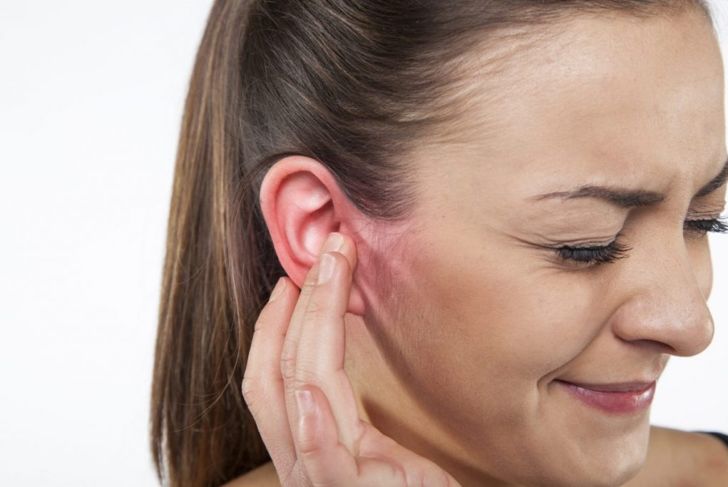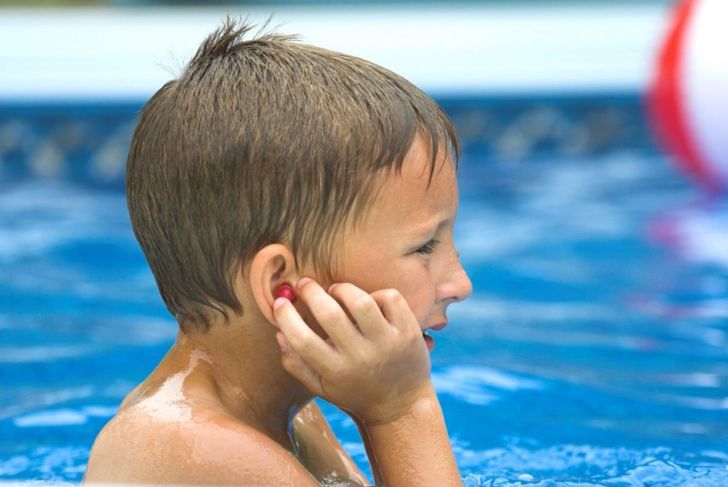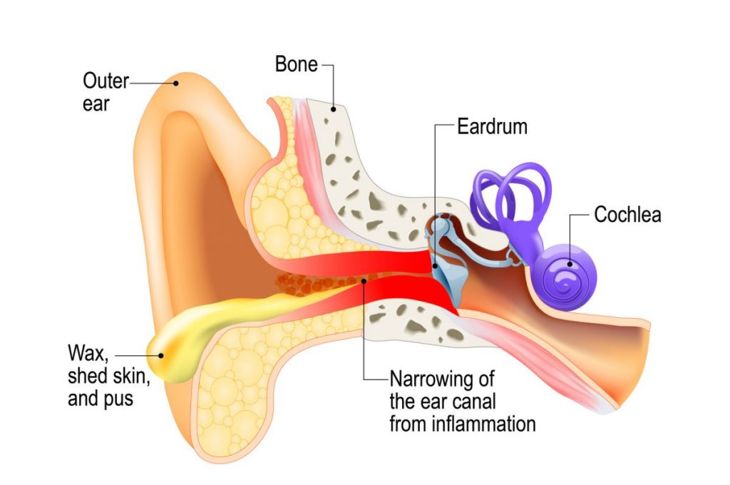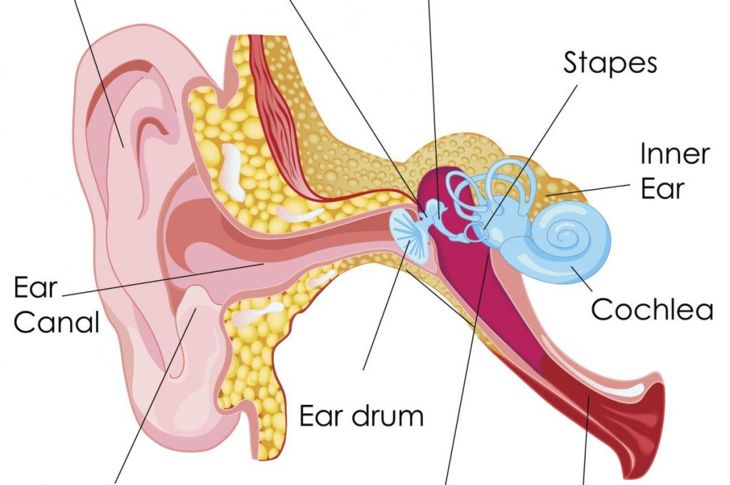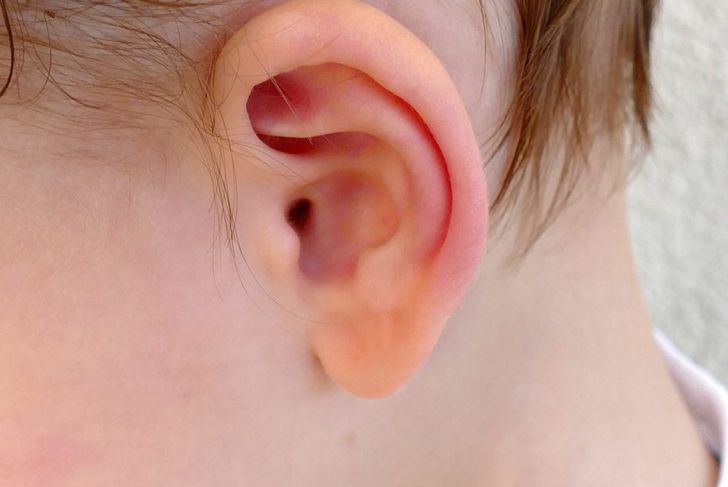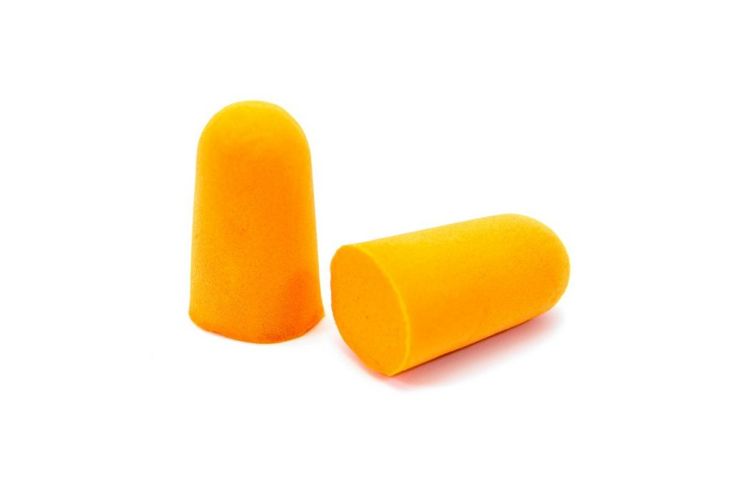More than 200,000 new cases of otitis externa, otherwise known as swimmer’s ear, are diagnosed each year. This condition, which can be very painful, can develop due to various factors and usually resolves without complications within two or three weeks. Swimmers and those who sweat profusely or live in moist, humid environments are at increased risk of developing otitis externa, since most bacteria thrive in wet conditions. The very young and the very old are at particular risk for this condition.
What is otitis externa?
Otitis externa, often referred to as swimmer’s ear, is an inflammation of the ear canal, the tube that spans the space between the eardrum and outer ear. Moisture offers bacteria a favorable environment, thus putting frequent swimmers and those who live in a wet environment at greater risk.
What causes swimmer’s ear?
Besides bacterial infections such as Pseudomonas aeruginosa and Staphylococcus aureus, other possible causes of otitis externa include a skin condition called seborrhoeic dermatitis that causes the ear to become red and inflamed, injury to the ear canal (as can happen with a cotton swab), allergic reaction and fungal infections such as candida albicans.
Symptoms of swimmer’s ear
Pain is the primary symptom of swimmer’s ear, and it can be quite severe. In addition, people with the condition may experience itchiness in and around the ear, a yellowish discharge, redness or swelling around the ear, and temporary hearing loss. In most cases, only one ear is affected.
Treatment for swimmer’s ear
Otitis externa is most commonly treated with prescription ear drops, the type of which depends on the underlying cause of the infection — bacterial or fungal. Infected people should avoid getting their ears wet during the healing process, and remove anything from around the ear that may cause an allergic reaction, such as an earring or a hearing aid. Over-the-counter pain medications are recommended for easing the pain.
Possible complications of swimmer’s ear
For most people, otitis externa resolves within two weeks with no complications. However, the condition can make one more prone to repeated infections, which can lead to abscesses or inflamed or perforated eardrums. Chronic swimmer’s ear can even cause a narrowing of the ear canal.
Diagnosing swimmer’s ear
Medical professionals diagnose otitis externa primarily with a visual examination. The doctor will examine the ear canal with an otoscope and look for swelling, redness, and discharge in and around the ear. He or she will also manipulate the ear slightly to determine the amount of pain and check for fever. A lack of ear wax can be an early symptom of swimmer’s ear, often evident before others develop.
Risk factors of swimmer’s ear
People who spend a lot of time in the water are most likely to develop swimmer’s ear, followed by those with weakened immune systems, skin conditions like psoriasis and eczema, and those who live in humid environments. People with hearing aids are also at increased risk.
How common is swimmer’s ear
Otitis externa affects approximately one to three percent of the population, and the vast majority of cases are acute. Approximately one in ten people will experience swimmer’s ear at some point in their life, most commonly when between the ages of seven and 12, or when at an advanced age.
When to see a doctor for swimmer’s ear
It’s important to see a doctor if swimmer’s ear is causing you extreme pain, if you have a fever, or if the condition doesn’t resolve within a few days. Doctors can prescribe antibiotics and medicated eardrops that will help your ear to heal. Most cases of otitis externa last no longer than two weeks.
Preventing swimmer’s ear
Strategies for preventing swimmer’s ear include avoiding inserting anything in the ear canal (such as cotton swabs), swimming in polluted water, washing your hair, or swimming if you suspect you have a mild case already. If you do go swimming, consider using quality earplugs to prevent the entrance of bacteria.

 Home
Home Health
Health Diet & Nutrition
Diet & Nutrition Living Well
Living Well More
More